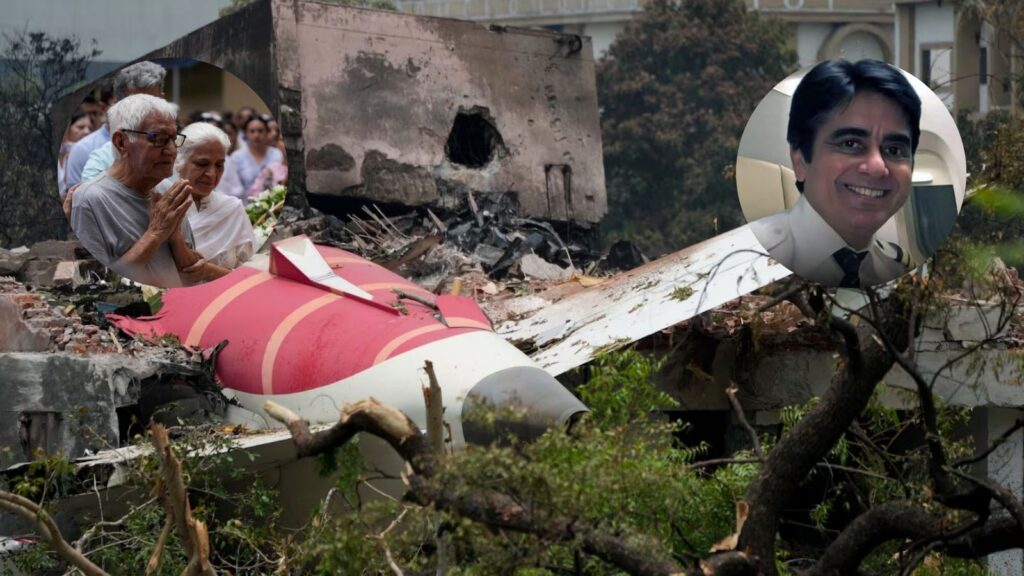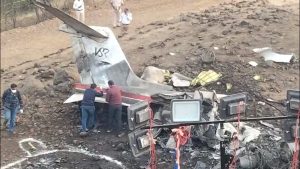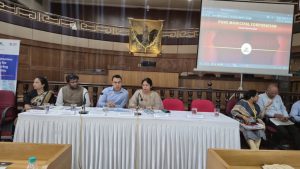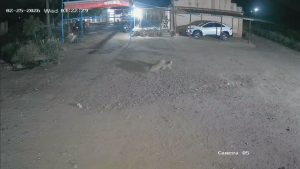‘No One in India Believes It Was Pilot’s Fault’: SC Tells Father of Pilot in Air India AI 171 Crash, Orders Deeper Probe into Systemic Failures

Air India AI 171 Crash: The Supreme Court of India has clarified that no fault can be attributed to the pilot-in-command of Air India Flight AI 171, which crashed shortly after take-off from Ahmedabad on June 12, 2025, killing over 260 people. The court’s remarks came as a major relief for the family of late Captain Sumeet Sabharwal, who commanded the Boeing 787 Dreamliner on that fateful day.
Court says ‘no blame on pilot’
A Bench of Justices Surya Kant and Joymalya Bagchi told the 91-year-old father of the deceased pilot, Pushkar Raj Sabharwal, that he should not carry the burden of blame. “The pilot is not to be blamed for the plane crash. It was an accident. There is no insinuation against him even in the preliminary report,” the Bench stated.
The court also issued notices to the Centre and the Directorate General of Civil Aviation (DGCA) while hearing Sabharwal’s petition seeking a judicially monitored probe into the accident. The Bench added that it was even willing to formally record this position to ensure that the pilot’s reputation remains intact.
Air India AI 171 Crash – What the AAIB preliminary report revealed
The Aircraft Accident Investigation Bureau (AAIB) report said both engines shut down when the aircraft’s fuel-control switches “transitioned” to the cutoff position three seconds after take-off, cutting fuel supply. Cockpit voice recordings captured one pilot asking, “Have you switched off the fuel switch?”, to which the other replied, “No.”
PuneNow had earlier reported that the fuel cutoff led to complete power loss and a failed recovery attempt, causing the fatal crash. Read the full report here: Air India AI171 Crash: Preliminary Report Out | Engine Shutdown, Power Loss, and Failed Recovery Lead to Fatal Ahmedabad Tragedy.
The Supreme Court underlined that the AAIB’s mandate is preventive, not punitive—its focus is to enhance aviation safety and prevent recurrence, not to apportion blame.
Family seeks fair and transparent investigation
Senior advocate Gopal Sankaranarayanan, appearing for the petitioner, alleged that the AAIB’s preliminary findings were “biased and incomplete” and had overlooked crucial technical or systemic failures. The petition demands a court-monitored, transparent, and technically robust investigation, pointing out that crucial evidence may have been ignored and that investigators could have conflicts of interest since they belong to regulatory bodies under scrutiny.
The plea further highlighted that Captain Sabharwal was one of the most experienced commanders on Air India’s Boeing 787 fleet, with over 30 years of flying and more than 15,000 flight hours.
For reference, PuneNow’s initial coverage detailed the tragedy’s timeline and rescue operations here: Air India Flight AI171 Crashes Near Ahmedabad Airport: 242 On Board, Rescue Operations Underway.
Next hearing and wider aviation implications
The apex court has tagged the Air India AI 171 Crash case with a pending petition filed by the NGO Safety Matters Foundation and set the next hearing for November 10. It also sought responses from the Centre and the DGCA.
The court’s remarks reinforce the need for independent and credible aviation investigations that focus on safety and accountability rather than blame. The Air India AI 171 crash continues to highlight gaps in technical oversight, reporting transparency, and crisis communication, issues that remain central to aviation safety reforms in India.










